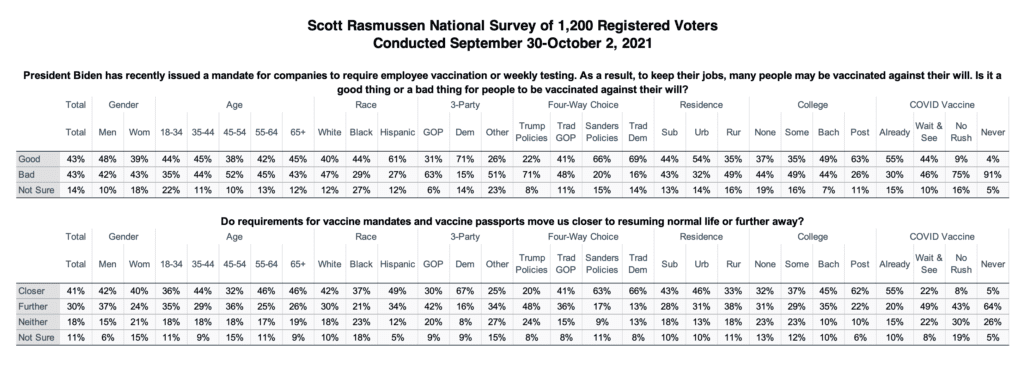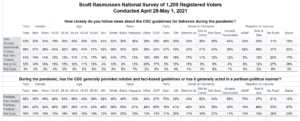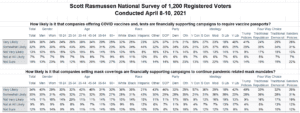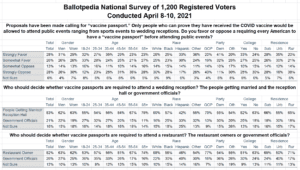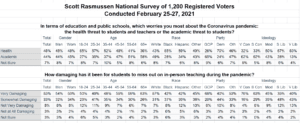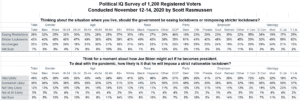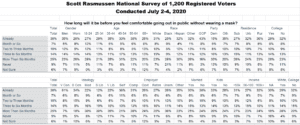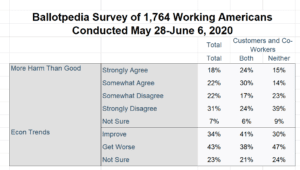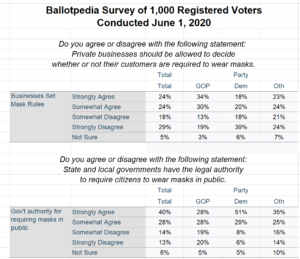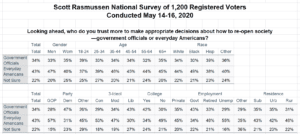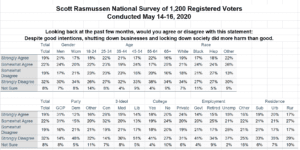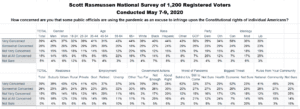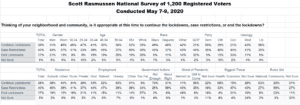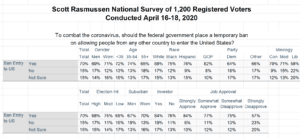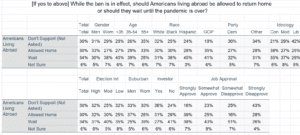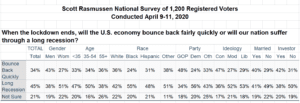Seventy-five percent (75%) of voters are close to resuming their normal life in terms of going out socially, traveling, and interacting with others in person. That’s up nine points from 66% in September.
A Scott Rasmussen national survey found that 22% say they are not close to resuming their normal life (down eight points).
Those totals include 39% who are Very Close to resuming their normal life. That’s up ten points since September. Just 6% who are Not at All close.
These results come amidst a renewed burst of optimism that we are putting the pandemic behind us.
Seventy-seven percent (77%) of White voters are close to resuming their normal life. So are 72% of Hispanic voters and 59% of Black voters.
Eighty-four percent (84%) of Republicans are close to resuming a normal life. So are 70% of Independent voters and 69% of Democrats.
However, GOP voters are much closer than other voters. Fifty-six percent (56%) of Republicans are Very Close to resuming their normal social interaction. Just 36% of Independents and 24% of Democrats have reached that point.
The hesitance of those who have been vaccinated to resume normal activities may be one factor driving economic challenges. Currently 45% of voters believe the U.S. is in a recession. Large majorities have experienced sharp inflation and supply chain issues.
Among those who have received the COVID vaccine, just 37% are Very Close to resuming normal social interaction. Among those who say they will never get vaccinated, that figure is 64%.
Among the vaccinated, 21% say they are not close to resuming normal activities.
SIGN UP to receive Scott’s free email newsletter.
CHECK OUT Scott’s latest polls.
Note: Neither Scott Rasmussen, ScottRasmussen.com, nor RMG Research, Inc. have any affiliation with Rasmussen Reports. While Scott Rasmussen founded that firm, he left more than seven years ago and has had no involvement since that time.
Question 1:
Which worries you more: That the Biden administration will re-open society too quickly or that they will wait too long?
36% Too soon
38% Wait too long
26% Not sure
Question 2:
Some people have generally resumed their life and go out socially, travel, and interact with others in person. How close are you to resuming a somewhat normal life?
39% Very close
36% Somewhat close
16% Not very close
6% Not at all
4% Not sure
Methodology
The survey of 1,200 Registered Voters was conducted online by Scott Rasmussen on October 28-30, 2021. Field work for the survey was conducted by RMG Research, Inc. Certain quotas were applied, and the sample was lightly weighted by geography, gender, age, race, education, internet usage, and political party to reasonably reflect the nation’s population of Registered Voters. Other variables were reviewed to ensure that the final sample is representative of that population.



